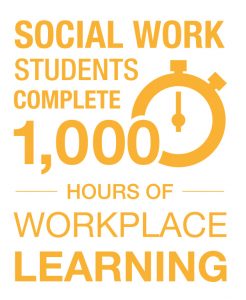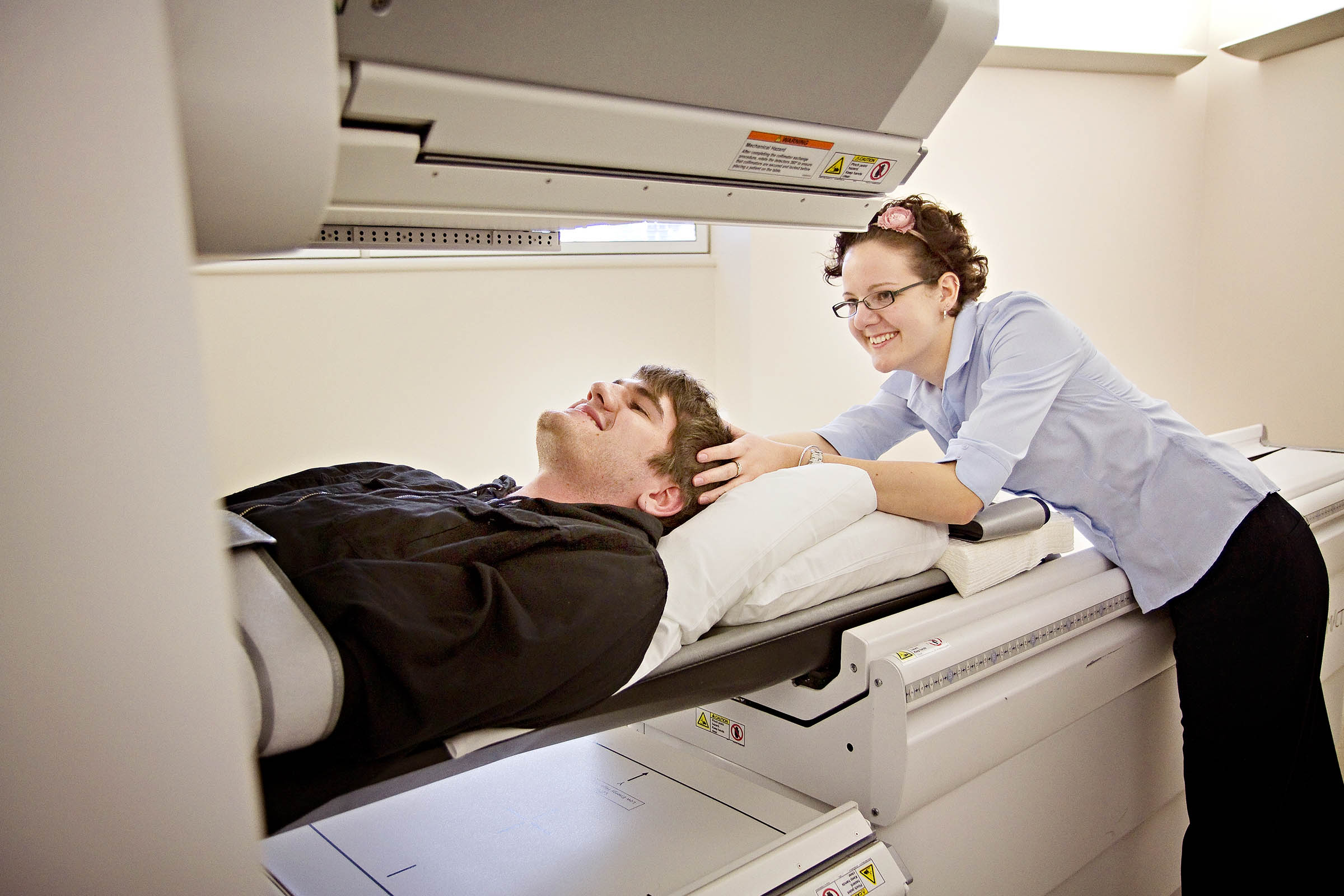When your child first steps into the workplace, you want them to be ready to hit the ground running and enjoy career success. If they study at Charles Sturt University, we make sure they are.
How?
Well, besides collaborating with industry partners to make sure our degrees deliver the knowledge students need to succeed in their chosen profession, we also put hands-on practical experience in actual workplaces at the heart of our courses.
It’s why we say that a student at Charles Sturt starts their career from the first day of their degree. Right from the get-go, they’re learning the knowledge and skills they’ll need to find a job, contribute new ideas to their industry and go on to a rewarding, dynamic career.
What is workplace learning?
Most of our courses include opportunities for students to undertake periods of work experience in public and private organisations related to their field of study.
These will often be business and community bodies in the local area. However, there are also workplace learning opportunities available overseas through our study abroad programs, and students of some courses get practical experience working with the public in the university’s own businesses. For instance, Dental and Oral Health Clinics at Albury, Orange, Wagga Wagga, Bathurst and Dubbo give students lots of opportunities to interact with patients, while in Wagga Wagga, animal and veterinary science students get hands-on experience in our Veterinary Clinical Centre, Equine Centre and Veterinary Diagnostic Laboratory.
 The number of placements and hours varies between courses. Students of the Bachelor of Social Work, for example, undertake 1000 hours of practical work experience during their course. Meanwhile, those pursuing the Bachelor of Business have an opportunity to undertake increasingly longer work placements in each year of their degree, with 35 hours in the first year, 70 hours in the second and 120 hours in the third, to reflect the development of their skills.
The number of placements and hours varies between courses. Students of the Bachelor of Social Work, for example, undertake 1000 hours of practical work experience during their course. Meanwhile, those pursuing the Bachelor of Business have an opportunity to undertake increasingly longer work placements in each year of their degree, with 35 hours in the first year, 70 hours in the second and 120 hours in the third, to reflect the development of their skills.
In all cases, students work with industry professionals and a university supervisor to help them get the most out of the opportunity.
The top five benefits of workplace learning
There are a wide range of benefits that come from integrating workplace learning into the structure of a university degree.
1. Students get first-hand experience in the real world of work
Students at Charles Sturt get to see how organisations function and what the expectations of workers are. They will be able to see how different roles within an industry function and interact with one another. Plus they start to see how they can find their own niche within the industry, and plot a path to career success.
2. Students get to use professional equipment
Workplace learning gives students the opportunity to become familiar with the ‘tools of the trade’. Whether its medical equipment, farm machinery, financial software or digital editing suites, this hands-on experience means students can be confident in their skills once they graduate.
3. Workplace learning makes learning more tangible
It adds another dimension to what a student gains from pursuing a degree, a chance to apply theoretical knowledge to real-world situations. For instance, understanding how the human body works on paper is very important for a medical science student, but it becomes much more visceral when they take that knowledge into a hospital or health clinic and relate it to actual patients.
Stephanie Taylor, a graduate from the Bachelor of Business, certainly felt this benefit.
“Throughout my course, I had the opportunity to undertake work placements, which included the Bathurst Regional Council, John Brady Building and Chris Stott Consulting. Each placement offered unique tasks to be undertaken and included events planning and promotions, market research and strategic marketing. What each of these placements had in common was the ability to link the theory learned throughout my studies to workplace practice. While studying I sometimes thought, ‘When will I ever use this?’ However, it was quite surprising when you realise how much you do draw upon. The knowledge wasn’t forgotten, it was just waiting to be applied practically.”
4. Workplace learning helps in building professional networks
Workplace learning begins from the very first year of study, meaning there’s the potential for a lot of contacts throughout a course. Our students have the chance to tap into the experience of industry professionals, connect with alumni working in the same field, seek advice from recent graduates and, yes, impress potential employers.
5. Workplace learning can lead to a job on graduation
Many of our graduates take their first step to career success with one of the organisations they have undertaken work experience with during their degree.
This was the case for Brittany Heity, a recent graduate from our Bachelor of Medical Radiation Science.
“Charles Sturt University provided a good variety of workplaces in both private and public organisations in rural and city areas. All of the practical placements and classes strongly influenced my ability to move smoothly into the workforce. I had the opportunity to complete placements at various locations, including Coffs Harbour Radiology, Ryde Hospital, Regional Imaging Calvary at Wagga, and at the X-ray Group in Albury. As a result I am now employed at the X-ray Group Albury as a graduate radiographer.”
Stepping into career success
So whatever field of study your child is interested in, at Charles Sturt University we help them build the skills they need to step into the world of work with confidence.


You must be logged in to post a comment.